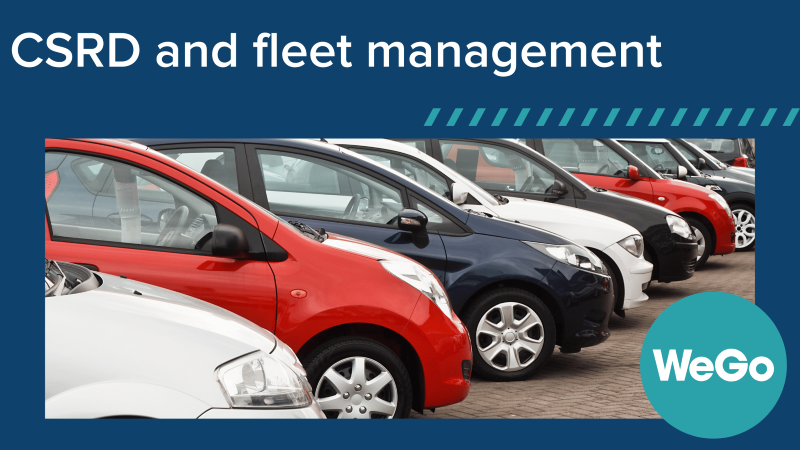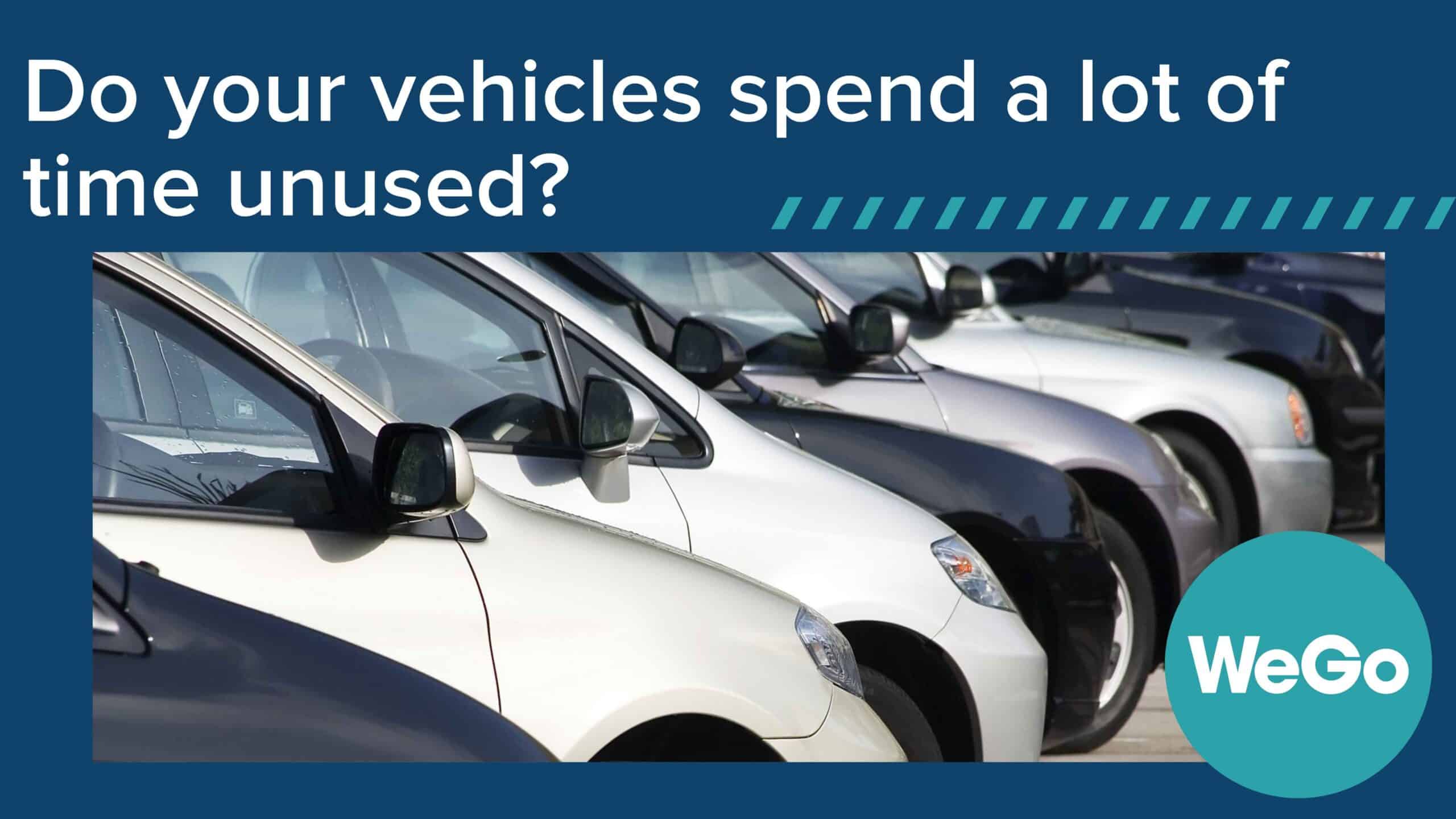- Joop Geesinkweg 901-999, 1114 AB Amsterdam, Netherlands
- +31 20 705 5187
- info@wegocarsharing.com
CSRD and fleet management: what does it mean for your organization?

From 2025, large listed organizations will be required to report on their impact on people and the environment. For other organizations, this obligation will apply from fiscal year 2027 at the earliest, depending on size and sector. Part of this sustainability reporting is mobility – specifically the use of the vehicle fleet.
The new EU legislation, the Corporate Sustainability Reporting Directive (CSRD), requires companies to disclose not only their direct CO₂ emissions, but also the indirect emissions from, for example, commuting and shared mobility. What does this mean concretely for your organization? And how can you prepare for it today?
What is the CSRD?
The CSRD is a European directive that came into effect in stages starting in 2024. Its goal: to make more transparent how companies perform in terms of environmental, social impact and governance (ESG). It replaces the previous Non-Financial Reporting Directive (NFRD) and sets stricter and more comprehensive requirements on sustainability topics.
According to the European Commission, some 50,000 companies in Europe will eventually be covered by the CSRD – significantly more than the 11,000 under the NFRD.
CSRD implementation timeline (including recent postponements):
-
2024 – Large publicly traded companies (formerly NFRD required)
-
2027 – Other large companies (≥250 employees, ≥€50 mln turnover or ≥€25 mln balance sheet total)
-
2028-2029 – Listed SMEs (with optional 2-year exemption)
📌 Please note that the original plan was for these groups to start earlier. However, in April 2025, the EU decided to postpone these deadlines by two years. The new dates will apply from fiscal year 2027.
📌 Source: European Commission – CSRD fact sheet
What should you report?
The CSRD requires companies to report on so-called ” double materiality.”
-
How sustainability affects the business (outside-in)
-
How the company contributes to or harms people and the environment (inside-out)
For fleet management, this means understanding:
-
Scope 1: direct emissions from own vehicles
-
Scope 2: indirect emissions from energy consumed (such as EV charging)
-
Scope 3: other indirect emissions, such as mobility allowances, shared mobility, leased cars and commuting trips
🔎 Important: companies must map all three emission categories according to international standards (such as the GHG Protocol).
📌 Since 2025, it is also clear that there will be no more sector-specific standards under the CSRD. This means that all organizations will use the general ESRS reporting standards – regardless of sector or industry.
Why is this important for fleet managers?
Gone are the days when mobility was seen as “just a cost.” Mobility is increasingly becoming part of sustainability policy. So organizations need to measure, monitor and report:
-
How many vehicles are in use?
-
What is the fuel or power consumption by type of vehicle?
-
How high is the occupancy rate?
-
Are vehicles shared or used individually?
-
How sustainable is mobility policy?
Without digital support, this is virtually unmanageable.
How WeGo helps with CSRD preparation
WeGo offers a complete software platform for smart vehicle sharing and management. The system automatically records trip data, user information, fuel consumption, charging and vehicle status. These data are directly usable for CO₂ reports and internal sustainability reports.
Take the step to sustainable mobility today
Even if you are not (yet) CSRD reportable, now is the time to start. Start by collecting data on your current mobility – think about usage, consumption, trips and car ownership. Then see where you can become more sustainable, for example by sharing vehicles, electrifying or reducing the number of cars. Digitize management and involve key departments such as HR, finance and sustainability from the start.
With WeGo, you give direct expression to that. Our platform offers, among other things:
-
Automatic trip and user registration
-
Understanding emissions by vehicle
-
Easy reporting to meet Scope 1-3 requirements
You also cleverly deploy shared cars and bikes to increase occupancy and reduce emissions. You manage everything centrally in one dashboard, which ensures more control and less hassle.
So you quickly realize a more compact, efficient and sustainable fleet – often with 30-40% fewer vehicles. Good for the environment and your budget.
Conclusion
The CSRD is no longer future music – it is a reality for thousands of organizations in Europe. At the same time, implementation has recently been eased: for many companies, the reporting requirement has been postponed until 2027 or even later. However, waiting is not a strategy. By creating insight into your fleet and mobility flows today, you will avoid surprises and lay a strong foundation for sustainable growth.
WeGo is happy to help you with that. Download our E-book here
📞 Want to learn more about how we can help your organization with sustainable mobility and CSRD reporting?
Contact us by phone at +31 20 705 5187 or email to info@wegocarsharing.com.
Stay informed about new developments
Subscribe to our newsletter.
"*" indicates required fields



